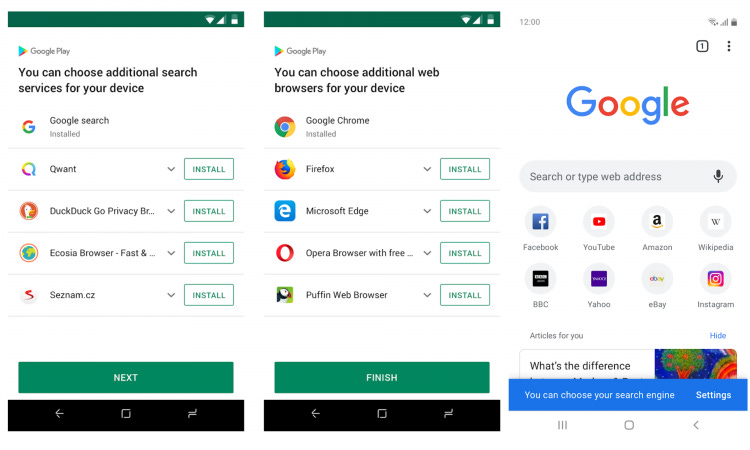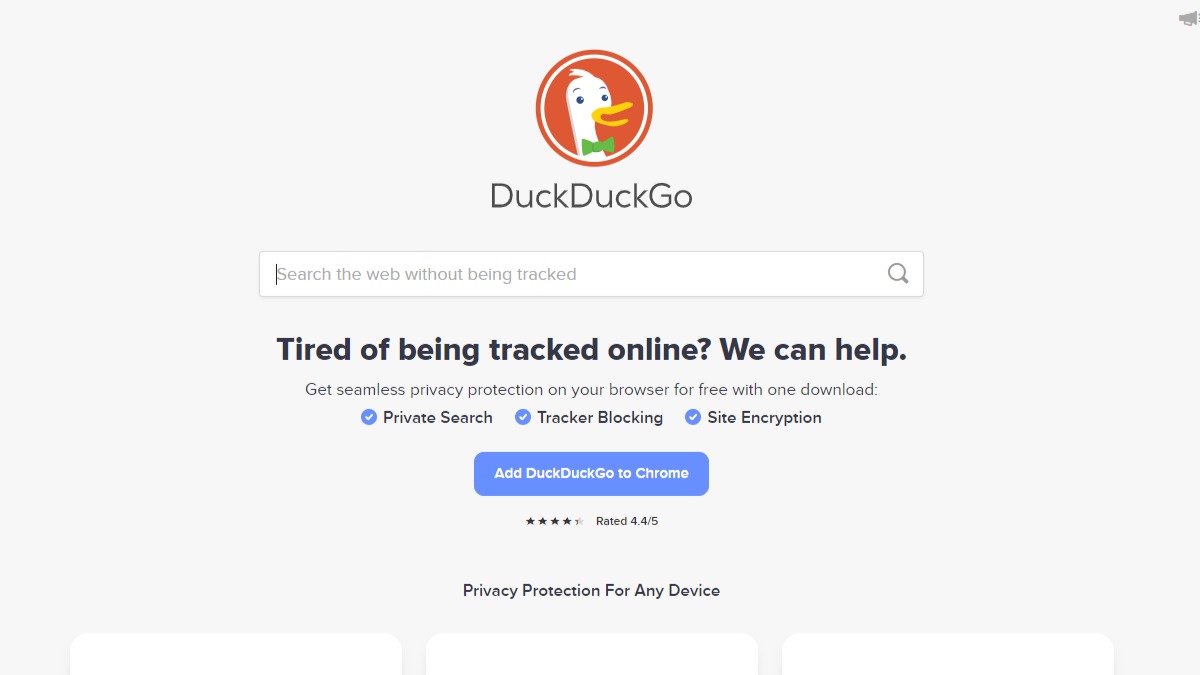Results of Google’s most recent default search engine auction saw Microsoft’s Bing search engine beating out competitor DuckDuckGo to become an option for Android users to be offered during the setup in selected European countries. DuckDuckGo, which was the most frequently offered alternative previously, was not pleased with the loss. And the company has now slammed Google’s auction process as “pay-to-play”.
“This EU antitrust remedy is only serving to further strengthen Google’s dominance in mobile search by boxing out alternative search engines that consumers want to use and, for those search engines that remain, taking most of their profits from the preference menu. The auction model is fundamentally flawed and must be replaced.”
DuckDuckGo wrote in a blog post published yesterday.

All you need to know about Google’s android search engine auction
Google hosts the auctions in every quarter in a response to the 2018 European Union antitrust ruling, which fined the search giant’s a record-breaking €4.3/$5 Billion after they found that Google was illegally tying its Chrome browser and Google Search tools to the Android OS in various ways.
Afte that Google now started to displays four search engine options randomly on a per-device basis. But the one of these four displayed depend on companies bidding against one another for a right to appear in the list. Depending on how much the companies are willing to pay Google each time a user selects their respective platform.
As the auction is held quarterly, with the results of the last one taking effect back in March. The results of this latest auction will take effect for the months of Oct. to Dec. In the latest auction competing search engines, Bing won 13 countries, DuckDuckGo won only eight countries, Info.com won all 31 countries, GMX won 16 countries, PrivacyWall won 22 countries, and Yandex also won only eight countries.

DuckDuckGo slams Google’s process of the android search engine auction
DuckDuckGo, which has failed to win more than eight countries but has won big in past auctions, criticized the method as an inherently unfair ploy to appease EU regulators and not a legitimate way to increase search engine competition.
The company said it was priced out of this auction because we choose to not maximize our profits by exploiting our users. Which means it makes less money per search and is then unable to bid as much as fellow rivals in the search engine business.
“This auction format incentivizes bidders to bid what they can expect to profit per user selection. The long-term result is that the participating Google alternatives must give most of their preference menu profits to Google. Google’s auction further incentivizes search engines to be worse on privacy, to increase ads, and to not donate to good causes, because, if they do those things, then they could afford to bid higher.”
the company’s blog post reads.

1 Comment
Pingback: DuckDuckGo, Brave, and Vivaldi are blocking Google’s new ad-tracking method FLoC - Craffic